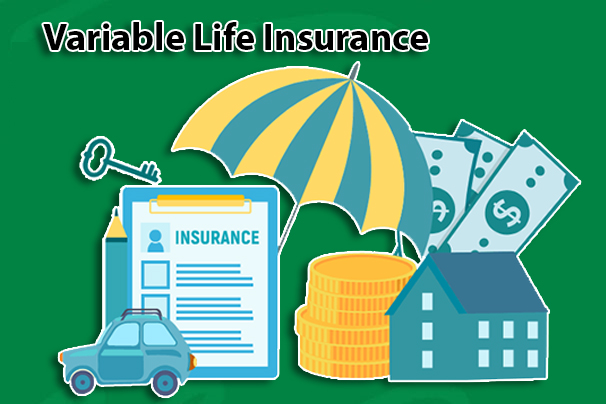Variable Life Insurance – Are you looking for a life insurance policy that will build cash value and will let you take a role in investing that cash value? If yes, then you should consider variable life insurance. It all depends on your goals; variable life might be the best fit for your investment, long-term insurance, and tax planning needs.

Before you think of buying this type of policy, ensure you know and understand how it works. In this article, you will learn all that you need to know about variable life. All you just need to do is to concentrate, read, and understand this article from the beginning till the end.
What is variable life insurance?
A variable life insurance policy is permanent life insurance between you and an insurance company. This life insurance pays a death benefit to your receivers or beneficiaries when you die. It is proposed to meet certain investment goals, insurance needs, and tax planning objectives. Be ready to take an active role in choosing investment options for your cash value, different from other policies like whole life insurance (where investment choices are made only by the life insurance company).
How Does Variable Life Insurance Work?
How a variable life insurance policy works is similar to other types of life insurance. You pay a premium, and your receivers or beneficiaries get a benefit when you are gone. Variable life policies include a cash value component that changes based on the following:
- The expenses and fees charged by the insurance company.
- The withdrawals or loans you take from cash value.
- The performance of the investments you have chosen.
- The amount of premiums you pay.
Variable life gives you the freedom to choose how you want to invest the cash value money. But you need to make a choice, so if you need a life insurance policy that you won’t be able to pay attention to, then a variable life insurance policy is not the best option for you.
Choosing a Death Benefit Option for Variable Life Insurance
Some variable life insurance policies pay your receivers or beneficiaries a fixed death amount after you are gone. For instance, if your policy’s face amount is $1,000,000, that will be what your receivers get regardless of your cash value at the time you are gone. The cash value is captured back into the life insurance company.
A policy with a variable death benefit will have a death benefit that either decreases or increases based on the cash value amount. A variable life policy you are seeing may have other death benefit options like
- Face amount plus the premium payments you made.
- Face amount plus the cash value you accumulated.
Ensure your financial advisor knows the type of death benefit you want so they can recognize the policies with this option.
Variable Life Insurance Pros and Cons
If you are still contemplating whether a variable life policy is worth it, consider the following pros and cons.
Pros:
When you take out money from your cash value, you can make use of it for anything you like, from adding retirement income to going on a lavish cruise.
- The death benefit will be paid to your beneficiaries tax-free.
- Cash value builds on a tax-deferred basis. You will not have to worry about taxes unless you withdraw money from the cash value.
- It can be used to diversify your overall investment strategy.
- Life insurance riders may be available that will add treasured features to the policy, like a critical illness, chronic illness, or terminal illness rider that will let you access money from your death benefit if you are diagnosed with the condition after buying the policy.
- Taking out loans or withdrawals against the policy’s cash value.
- Investment options offer the potential to grow greater cash value than some other types of life insurance.
Cons:
- Variable life insurance policies have fees and other charges associated with the policy’s investment component.
- You not paying back a loan made against the cash value account will surely reduce the death benefit amount.
- Market volatility can harm the policy’s cash value.
Final Thought
A variable life insurance policy is a type of insurance that can help in fulfilling your investment objectives, financial requirements, and tax planning goals. However, it is important to know that these policies may not be suitable for everyone, and you should consider both the potential risks and rewards of investing in the market. To make a conversant decision, you should seek the advice of a financial advisor who can help you determine the options that are best suited for your unique financial situation and goals.



